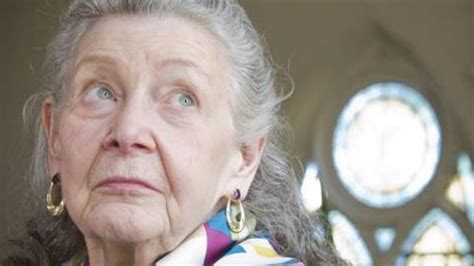A Quote by Albert Camus
For who would dare to assert that eternal happiness can compensate for a single moment's human suffering
Related Quotes
Happiness can come in a single moment. And in a single moment it can go again. But a single moment does not create it. Happiness is created through countless choices made and then made again throughout a lifetime. You are its host as well as its guest. You give it form, shape, individuality, texture, tone. And what it allows you to give can change your world. Happiness can be stillness. But it isn't still. It wraps, enchants, heals, consoles, soothes, delights, calms, inspires and connects. It is on your face and in your body. It is in your life and being.
True freedom and the end of suffering is living in such a way as if you had completely chosen whatever you feel or experience at this moment. This inner alignment with Now is the end of suffering. Is suffering really necessary? Yes and no. If you had not suffered as you have, there would be no depth to you as a human being, no humility, no compassion. You would not be reading this now. Suffering cracks open the shell of ego, and then comes a point when it has served its purpose. Suffering is necessary until you realize it is unnecessary.
Yet suppose further. Suppose that all worlds, all universes, met at a single nexus, a single pylon, a Tower. And within it, a stairway, perhaps rising to the Godhead itself. Would you dare climb to the top, gunslinger? Could it be that somewhere above all of endless reality, there exists a room?...' You dare not.' And in the gunslinger's mind, those words echoed: You dare not.
[The church] is in its major part an opponent still of progress and improvement in all the ways that diminish suffering in the world, because it has chosen to label as morality a certain narrow set of rules of conduct which have nothing to do with human happiness; and when you say that this or that ought to be done because it would make for human happiness, they think that has nothing to do with the matter at all. "What has human happiness to do with morals? The object of morals is not to make people happy.
The belief that happiness has to be deserved has led to centuries of pain, guilt, and deception. So firmly have we clung to this single, illusory belief that we've almost forgotten the real truth about happiness. So busy are we trying to deserve happiness that we no longer have much time for ideas such as: Happiness is natural, happiness is a birthright, happiness is free, happiness is a choice, happiness is within, and happiness is being. The moment you believe that happiness has to be deserved, you must toil forevermore.
The life-efficiency and adaptability of the computer must be questioned. Its judicious use depends upon the availability of its human employers quite literally to keep their own heads, not merely to scrutinize the programming but to reserve for themselves the right of ultimate decision. No automatic system can be intelligently run byautomatonsor by people who dare not assert human intuition, human autonomy, human purpose.
For optimists, human life never needs justification, no matter how much hurt piles up, because they can always tell themselves that things will get better. For pessimists, there is no amount of happiness—should such a thing as happiness even obtain for human beings except as a misconception—that can compensate us for life’s hurt.
It is one of the great ironies of human history that some mortals with incorrect understanding of God and life's purposes sometimes scold God because of the abundance of human misery and suffering-which, indeed, lies all about us. Such individuals almost dare God to demonstrate His existence by straightening things out-and at once! But He is a much different kind of Father than that. Surely it is requisite to eternal life that we come to know God and Jesus Christ whom He has sent (see John 17:3).







































